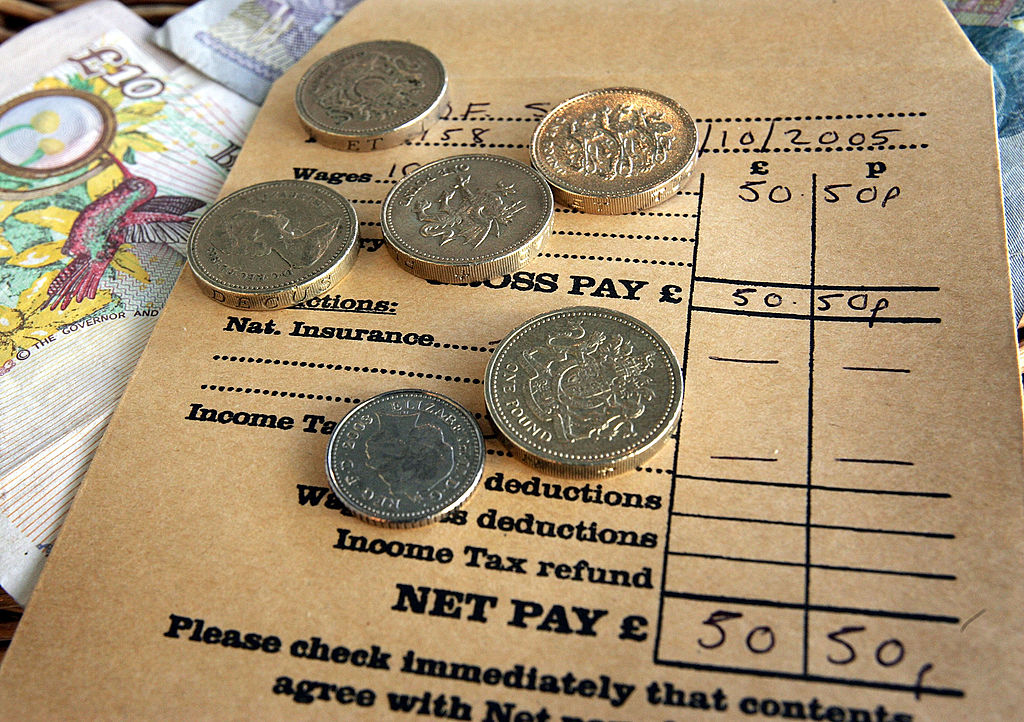1 April 1999: The minimum wage is introduced in Britain
The national minimum wage was introduced in Britain on this day in 1999, bringing an instant pay rise to 1.9 million low-paid workers


Get the latest financial news, insights and expert analysis from our award-winning MoneyWeek team, to help you understand what really matters when it comes to your finances.
You are now subscribed
Your newsletter sign-up was successful
Want to add more newsletters?

Twice daily
MoneyWeek
Get the latest financial news, insights and expert analysis from our award-winning MoneyWeek team, to help you understand what really matters when it comes to your finances.

Four times a week
Look After My Bills
Sign up to our free money-saving newsletter, filled with the latest news and expert advice to help you find the best tips and deals for managing your bills. Start saving today!
The first wage laws weren't about how little you could pay your workers, they were about how much. During the reign of King Edward III, in the 1350s, the Black Death had decimated the population. That meant there were fewer serfs to till the fields and grind the corn.
By the age-old rules of the free market, if there's less of something, you have to pay more for it. But of course, this was medieval England and there wasn't a free market. (Some would argue there still isn't, thanks to central bankers.)
So, when on 1 April 1999, Britain's first minimum wage became law under the National Minimum Wage Act 1998, the low-paid descendants of the till hands and field labourers could be forgiven for thinking it was some cruel April Fool's jape. Thankfully, it wasn't. New Labour, with Tony Blair at the helm, pledged to introduce a minimum wage if they were elected in 1997 and elected they were.
MoneyWeek
Subscribe to MoneyWeek today and get your first six magazine issues absolutely FREE

Sign up to Money Morning
Don't miss the latest investment and personal finances news, market analysis, plus money-saving tips with our free twice-daily newsletter
Don't miss the latest investment and personal finances news, market analysis, plus money-saving tips with our free twice-daily newsletter
Of course, those wealthy medieval barons have their descendants too, and not everyone was thrilled at the idea of a floor dictating how little they could pay their workers. A national minimum wage, it was argued, would destroy jobs and harm those it was intended to help.
As it turned out, the pay floor didn't cost many jobs. Author Tim Harford, writing in the FT, offers by way of an explanation for the "puzzling suspension of the law of supply and demand" that higher wages made for a more committed workforce. Those who have ever been paid the minimum wage may question the wisdom of that.
Nevertheless, when the minimum wage was introduced in the final year of the 20th century, 1.9 million people received a pay rise to £3.60 an hour (£3.00 for those aged 18 to 20). The Low Pay Commission was set up to enforce the new rules.
The rate now stands at £12.21 per hour for those aged 21 and over, £8.60 for those between 18 and 20, and £7.55 for under-18s.
Get the latest financial news, insights and expert analysis from our award-winning MoneyWeek team, to help you understand what really matters when it comes to your finances.

-
 How Canada's Mark Carney is taking on Donald Trump
How Canada's Mark Carney is taking on Donald TrumpCanada has been in Donald Trump’s crosshairs ever since he took power and, under PM Mark Carney, is seeking strategies to cope and thrive. How’s he doing?
-
 MoneyWeek news quiz: Can you get smart meter compensation?
MoneyWeek news quiz: Can you get smart meter compensation?Smart meter compensation rules, Premium Bonds winners, and the Bank of England’s latest base rate decision all made the news this week. How closely were you following it?
-
 31 August 1957: the Federation of Malaya declares independence from the UK
31 August 1957: the Federation of Malaya declares independence from the UKFeatures On this day in 1957, after ten years of preparation, the Federation of Malaya became an independent nation.
-
 13 April 1960: the first satellite navigation system is launched
13 April 1960: the first satellite navigation system is launchedFeatures On this day in 1960, Nasa sent the Transit 1B satellite into orbit to provide positioning for the US Navy’s fleet of Polaris ballistic missile submarines.
-
 9 April 1838: National Gallery opens in Trafalgar Square
9 April 1838: National Gallery opens in Trafalgar SquareFeatures On this day in 1838, William Wilkins’ new National Gallery building in Trafalgar Square opened to the public.
-
3 March 1962: British Antarctic Territory is created
Features On this day in 1962, Britain formed the British Antarctic Territory administered from the Falkland Islands.
-
10 March 2000: the dotcom bubble peaks
Features Tech mania fanned by the dawning of the internet age inflated the dotcom bubble to maximum extent, on this day in 2000.
-
9 March 1776: Adam Smith publishes 'The Wealth of Nations'
Features On this day in 1776, Adam Smith, the “father of modern economics”, published his hugely influential book The Wealth of Nations.
-
 8 March 1817: the New York Stock Exchange is formed
8 March 1817: the New York Stock Exchange is formedFeatures On this day in 1817, a group of brokers moved out of a New York coffee house to form what would become the biggest stock exchange in the world.
-
7 March 1969: Queen Elizabeth II officially opens the Victoria Line
Features On this day in 1969, Queen Elizabeth II took only her second trip on the tube to officially open the underground’s newest line – the Victoria Line.